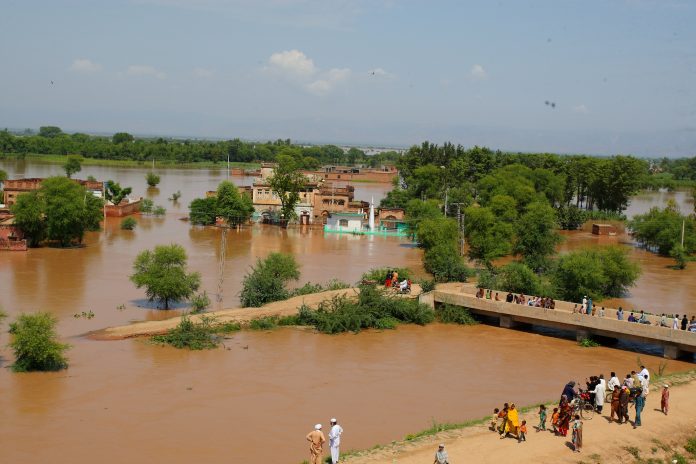Flash floods have wreaked havoc in Ishokman Valley, located in northern Pakistan-occupied Gilgit-Baltistan (PoGB), leading to extensive damage and disruption across multiple regions.
The recent melting of the Badswat Glacier has resulted in severe damage. The floods have destroyed a temporary bridge and approximately 1,000 feet of road infrastructure in Badswat. This has isolated the areas of Ganjabad, Borth, Bazar Katu, Yazben, and Mutramdan by severing land connections between Badswat and Mutramdan.
As a result, around 400 households in these regions are facing significant difficulties in accessing essential services, including transportation and education for children. The current crisis has been exacerbated by drastic climate changes and inadequate local administrative response by the occupied-authorities.
Other villages in Ishokman, such as Center Kot and Faizabad Bala, have also suffered extensive damage. Land connections have been disrupted at three different locations, with the bridge in Kot Pain facing the risk of complete erosion by the river. Five residential houses have been damaged, and four shops and cattle sheds have also been partially affected. Major irrigation channels in Ishokman Proper have been damaged, raising concerns about the potential drying up of fertile lands due to interrupted water supply.
This disaster follows similar issues previously experienced in the Hunza Valley, where rapid glacier melting and river overflow destroyed numerous households and disrupted livelihoods. The lack of an effective local administrative response left many residents in distress.
Similar flood-like conditions were observed earlier on the outskirts of the Skardu and Shigar districts. However, inadequate rescue and assistance efforts from local authorities resulted in the destruction of private property and homes, particularly affecting poorer individuals.

